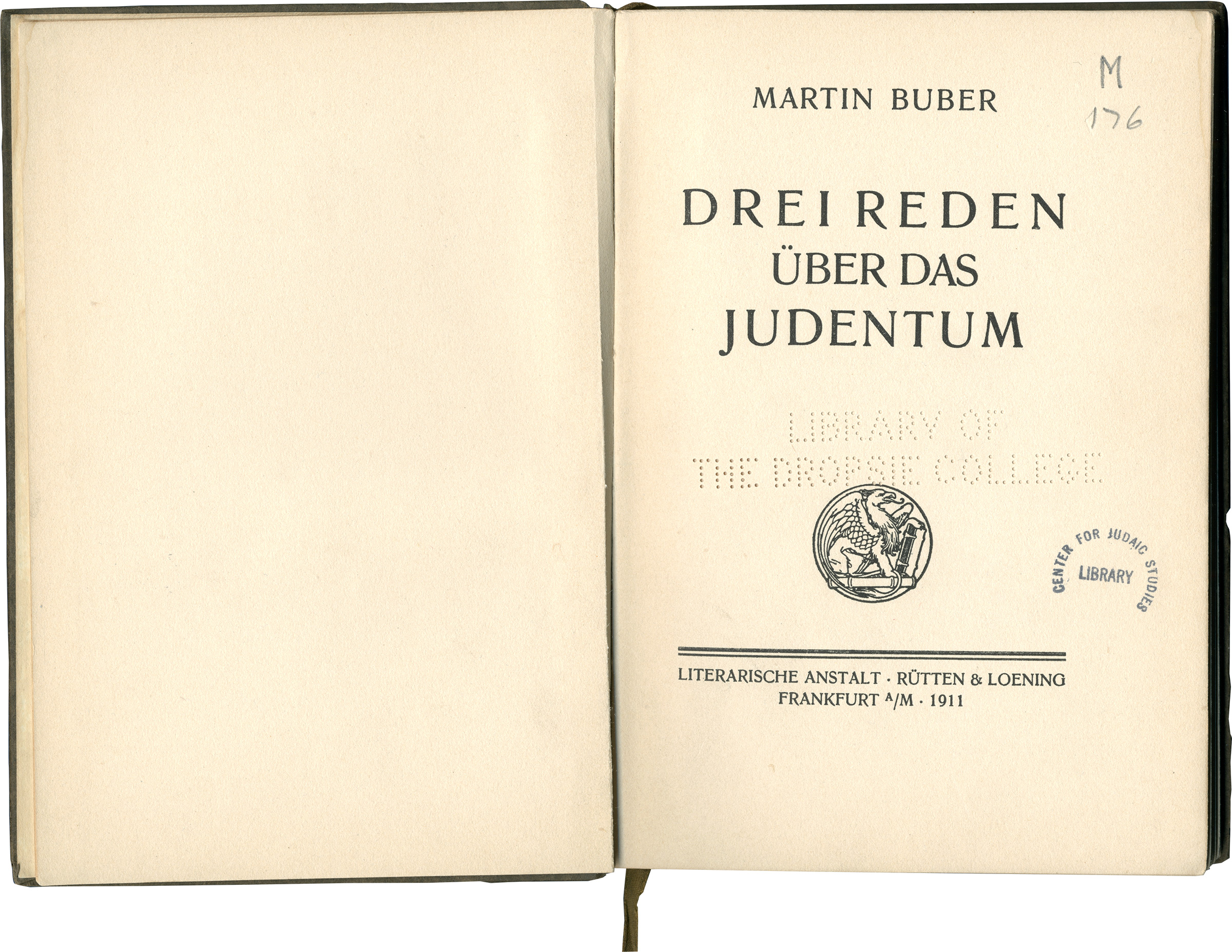First editions can be precious little treasures. Their tactility and physical layout are like time capsules that preserve something tangible from the moment of their production. Flipping through a first edition’s pages one is easily tempted to transport oneself to the author’s time and place and absorb the setting that inspired him or her to write a work that can still stir, perplex and invigorate our minds today. First editions are also valuable for capturing most genuinely the author’s position on the subject matter, which many times is changed or revised in subsequent editions. Martin Buber’s Drei Reden über das Judentum (Three Speeches on Judaism), a copy of whose first edition (1911) is held at the Katz Center library is such a specimen. Between the lines that moved Buber’s admiring audience in Prague, where he delivered the speeches, and thousands of subsequent readers, one may find his initial thoughts about the place of Gnosticism in the evolution of Christianity. This is probably the first text in which Buber describes the rift torn between Christianity and Judaism as having been caused by the Gnostic influences on Paul the Apostle, while Jesus’ teachings still maintained close affinities with the faith of Israel. This kernel of an idea sustained years of research and writing on the subject on Buber’s part. More than a century after its publication, Drei Reden remains a beautifully crafted book of puzzles awaiting further exploration.
Which exhibit?
Page: Featured item
Order on exhibit page
13
Turn off the details link on the exhibit page
Off
